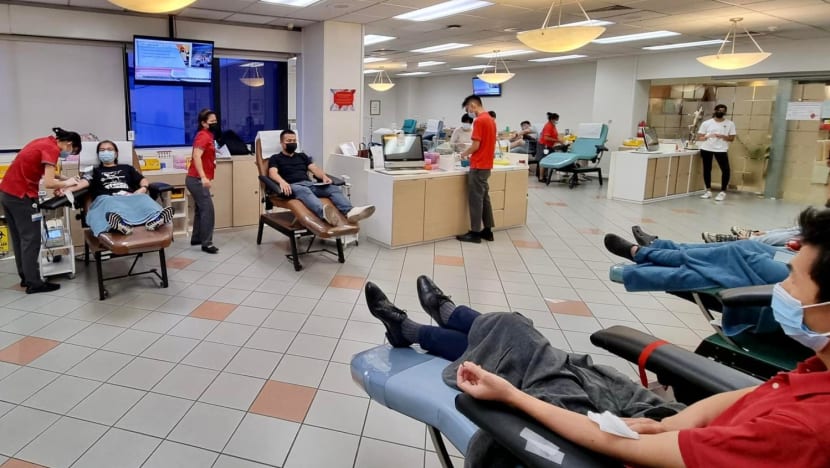SINGAPORE: Health Minister Ong Ye Kung on Saturday (Jun 17) appealed for donations of O blood, with blood stocks in Singapore at low to moderate levels, where they have been since the start of the year.
Speaking at an event at Singapore Expo marking World Blood Donor Day, Mr Ong said blood usage has increased in recent months, as hospitals catch up on the backlog of elective surgeries and treatments that were postponed because of the COVID-19 pandemic.
Demand for the O blood group - which can be used in emergencies by patients of any blood group - has been particularly high and stocks have been depleting fast, Mr Ong said.
This coincides with the June school holidays and people travelling, which means blood donation takes a hit, he added. This is because of rules prohibiting blood donation following visits to certain countries.
Mr Ong called on donors and potential donors to make it a habit to donate blood before they travel, which would help raise Singapore’s blood stocks to healthy and sustainable levels.
